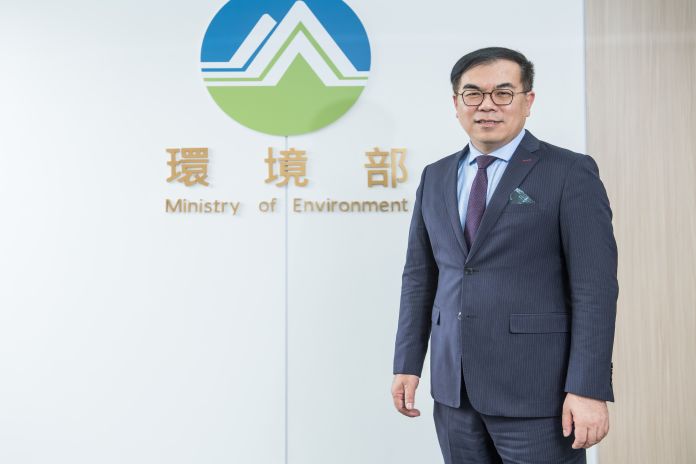By Peng Chi-ming
Climate change has greatly affected countries around the world. As a member of the international community, Taiwan also faces serious challenges in this area. In recent years, we have witnessed the most severe drought in a century, intense rainfall, and devastating typhoons.
President Lai Ching-te is promoting five key strategies for a net-zero transition. This involves initiating a second energy transition; accelerating development of renewable energy sources such as geothermal, hydrogen, biomass, and ocean energy; advancing a twin digital and green transformation of our industries, and shaping net-zero lifestyles. We are thus pressing toward a fair transition that leaves no one behind.
In June, Taiwan established the National Climate Change Committee under the Office of the President to address climate governance and international cooperation from the perspective of national development. The committee is focused on seven areas: pathways to net-zero, diverse green energy and carbon reduction technologies, the twin green and digital transformation, sustainable green lifestyles, a fair transition, green sustainable finance, and a sustainable homeland and adaptive resilience. The committee allows for better communication of the government’s climate change response, accelerates policy implementation, and enhances public participation.
Taiwan is taking many steps to address climate change. In a demonstration of commitment to emissions reduction, it has incorporated the 2050 net-zero emissions target into the Climate Change Response Act. Meanwhile, legislation has been completed to establish a carbon fee system, similar to a global carbon tax, that will take effect in 2025. Companies will begin trial reporting in the middle of 2025 at an initial standard rate of approximately US$10 per ton of carbon dioxide equivalent (tCO2e). The rate will be subjected to phased increases based on recommendations from the Carbon Fee Rate Review Committee and, by 2030, reach a level that mirrors international standards of between US$40 and US$60 per tCO2e.
Taiwan has also pledged to launch an emissions trading system in the next four years that will further integrate it with global markets. These policies align with Article 6 of the Paris Agreement, which encourages international collaboration on climate action through market mechanisms such as carbon pricing to reach more ambitious climate goals.
The carbon fee is just the first step in Taiwan’s carbon pricing system. Following on this, Taiwan will launch three major funds to stimulate development of green industries. The Green Growth Fund of NT$10 billion will be established to encourage the growth of emerging domestic net-zero industries. Funding from the insurance and financial sectors will support the Green Finance Innovation Fund for long-term investments in energy-saving, net-zero, and resource-circular industries.
Finally, the Taiwan Net-Zero Fund will work to meet domestic and international carbon reduction goals by partnering with domestic emissions-intensive industries, venture capital firms, and financial institutions to assess and invest in various carbon reduction technologies. This fund will also bring Taiwan’s leading companies into global carbon reduction strategies, accelerate net-zero initiatives, and attract greater green investment. Such moves will enhance Taiwan’s international competitiveness, are in line with Article 9 of the Paris Agreement, which calls for developed countries to mobilize climate finance from diverse sources, and will lay a solid foundation for Taiwan’s sustainable development.
In terms of adaptation, Taiwan released its latest National Climate Change Science Report in May. This report provides foundational scientific data for local governments and ministries for use in short- and medium-term adaptation planning. It addresses the development of early-warning mechanisms and system monitoring to improve urban environmental resilience. A multilevel disaster prevention system will be established that incorporates disaster prediction, response, and recovery measures to enhance disaster response capabilities and build a nation that is resilient thanks to integrated disaster prevention, adaptation, and net-zero goals. This aligns with Article 7 of the Paris Agreement, which calls on all parties to promote and implement adaptation policies. Taiwan will continue to use early-warning systems and monitoring measures to refine national adaptation policies.
As a major economy and a hub for technological innovation, Taiwan’s capabilities in renewable energy, climate adaptation, and low-carbon technological innovation can be of great help to global climate governance. Innovation and implementation will be critical drivers of climate action. With the advent of carbon pricing and the promotion of related innovative technologies, Taiwan will participate in global climate action through enhanced domestic policies and systems. We hope the international community will recognize that Taiwan is willing and able to contribute to global climate change efforts.





